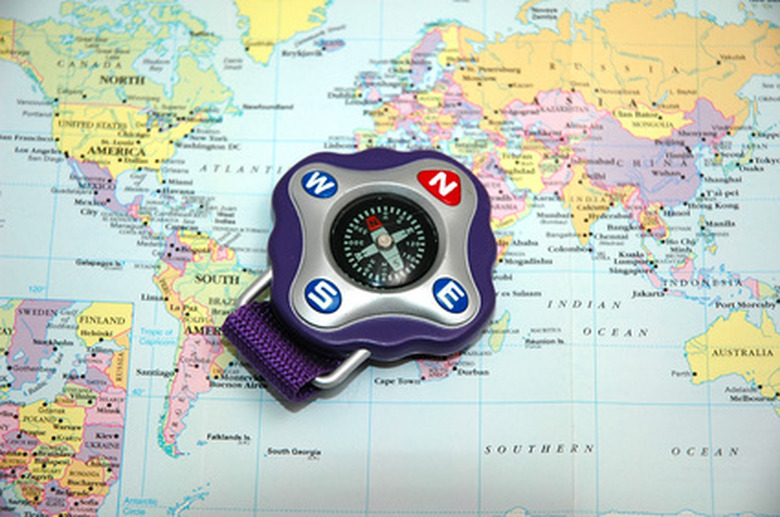How To Convert Latitude Degrees To Decimal
Latitude measurements are imaginary lines that run around the earth, parallel to the equator. Degrees of latitude are the opposite of degrees of longitude, which are imaginary lines that run around the earth perpendicular to the equator. Together latitude and longitude are used to track coordinates, measure distance, and determine directions. Latitude can be stated in degree form — with minutes and seconds — or in decimal form. You can convert a latitudinal measurement from degrees to a decimal by following a mathematical formula.
Step 1
Divide minutes by 60. For example, if you had a degree followed by 45 minutes, you would divide 45 by 60 to get 0.75.
Step 2
Divide seconds by 3600. For instance, if you had a degree and minutes followed by 35 seconds, you would divide 35 by 3600 to get 0.00972.
Step 3
Add your answers from steps one and two and state the answer after the decimal following the number of degrees. For instance, if you have a latitude of 150 degrees 45 minutes 35 seconds North, you would convert this to a decimal value of 150.75972.
Cite This Article
MLA
Johnson, Charlotte. "How To Convert Latitude Degrees To Decimal" sciencing.com, https://www.sciencing.com/convert-latitude-degrees-decimal-7486138/. 24 April 2017.
APA
Johnson, Charlotte. (2017, April 24). How To Convert Latitude Degrees To Decimal. sciencing.com. Retrieved from https://www.sciencing.com/convert-latitude-degrees-decimal-7486138/
Chicago
Johnson, Charlotte. How To Convert Latitude Degrees To Decimal last modified March 24, 2022. https://www.sciencing.com/convert-latitude-degrees-decimal-7486138/
